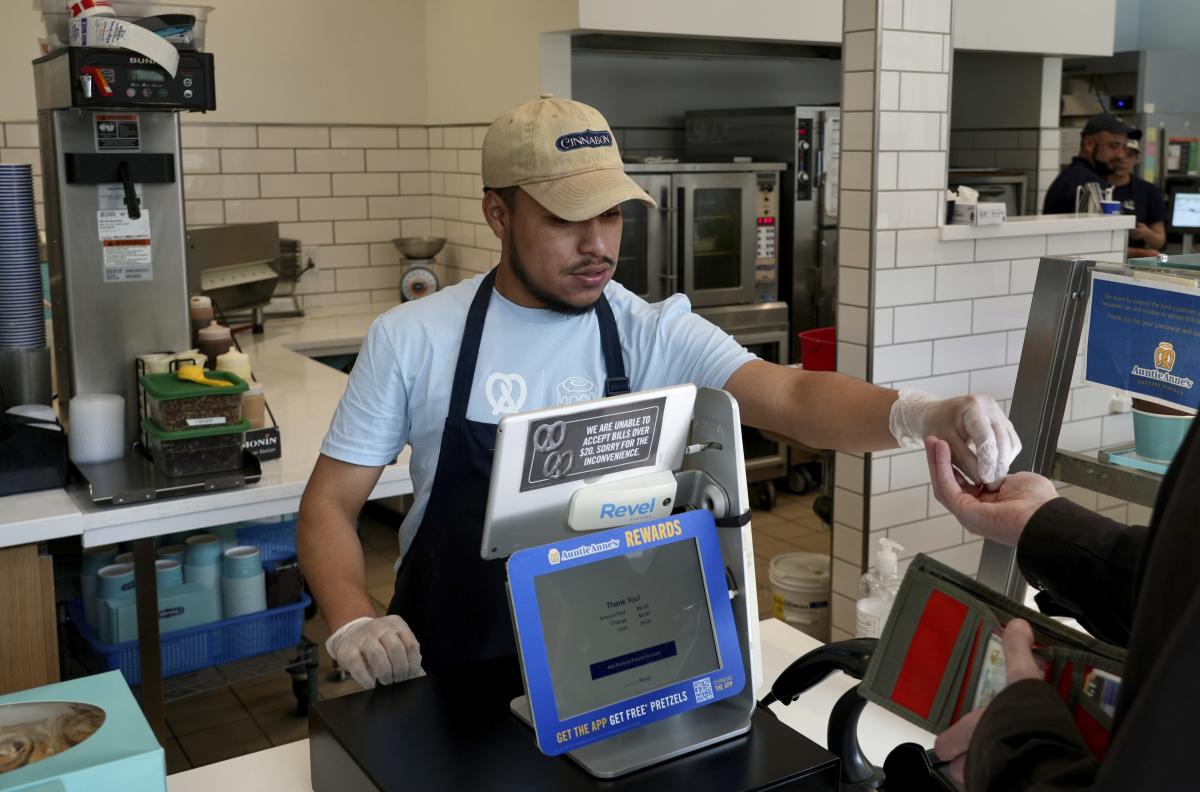California Fast Food Workers to be Paid $20 an Hour Under New Law
Financial Security for Low-Paying Profession
LIVERMORE, Calif. — Starting Monday, fast food workers in California will receive a minimum wage of $20 an hour, offering increased financial security to a historically marginalized profession. Although this move aims to support workers, it has raised concerns about potential price increases in a state renowned for its high cost of living.
Recognition of Essential Workers
The law, passed last year by Democrats in the state Legislature, acknowledges that the majority of the 500,000 individuals working in fast food restaurants are not teenagers earning pocket money, but adults who rely on these jobs to support their families. This includes immigrants such as Ingrid Vilorio, who arrived in the United States in 2019 and found employment at a McDonald’s. Although she transitioned to working at a Jack in the Box and balancing multiple jobs last year, Vilorio emphasizes the positive impact of the $20 raise on workers.
Speaking through a translator, Vilorio said, “The $20 raise is great. I wish this would have come sooner. Because I would not have been looking for so many other jobs in different places.”
Franchise Owners Concerned about Economic Impact
The law, supported by the fast food franchise owners trade association, has become a source of unease for many franchise owners, particularly in California’s slowing economy. Alex Johnson, owner of ten Auntie Anne’s Pretzels and Cinnabon restaurants in the San Francisco Bay Area, lamented the decline in sales, leading to layoffs and reduced hiring. Johnson estimates that the wage increase will cost him $470,000 annually and will necessitate price hikes between 5% to 15% at his stores. As a result, he is no longer considering opening new locations in California and even contemplates the sale or closure of his business.
Expressing his concerns, Johnson said, “I try to do right by my employees. I pay them as much as I can. But this law is really hitting our operations hard. The profit margin has become too slim when you factor in all the other expenses that are also going up.”
Positive Employment Effects and Regional Variations
Despite apprehensions, California’s decade-long increase of the minimum wage to $16 per hour for most workers has contradicted fears of imminent job losses. Wage hikes have coincided with a rise in employment, as demonstrated by data analyzed by Michael Reich, a labor economics professor at the University of California-Berkeley. Additionally, many cities in California have their own minimum wage laws, resulting in varying rates that exceed the statewide minimum. Consequently, the leap to $20 an hour in fast food restaurants will affect some locations less.
Discussing these trends, Reich stated, “I was surprised at how little, or how difficult it was to find disemployment effects. If anything, we find positive employment effects.”
A Compromise Between the Industry and Labor Unions
The wage increase law stemmed from extensive negotiations between the fast food industry and labor unions. After nearly two years of debating wages, benefits, and legal liabilities, a carefully crafted compromise emerged to address the competing interests. These negotiations, along with the signing of confidentiality agreements, laid the foundation for the law, which applies to fast food establishments with limited or no table service and national chains with at least 60 locations nationwide. Restaurants offering bread as a stand-alone item and those operating inside grocery stores are the exceptions.


